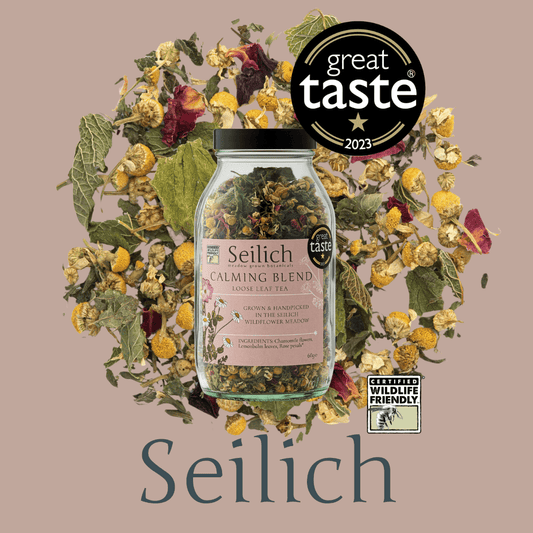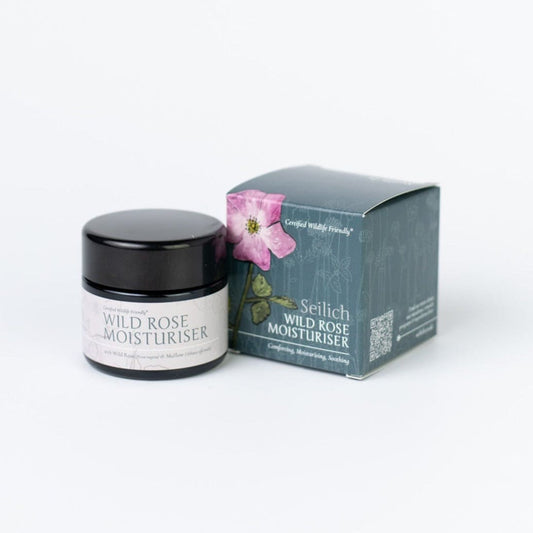Sustainability
Environmental Sustainability “….. causing little or no damage to the environment and therefore able to continue for a long time” Cambridge Dictionary, 2022

At Seilich we take sustainability very seriously. By that we mean our business aims to cause little or no damage to the environment (land, air or water water), enabling us to continue to make our products well into the future.
We achieve this by first improving our local environment by creating wildflower meadows. Wildflowers sink carbon, increase biodiversity and improve the soils, thus having an overall positive environmental impact. We then limit the negative environmental impact of our business activities by;
- Using careful ingredient selection (growing 80% of our ingredients on site and ensuring those we buy in are (wherever possible) natural, organic, and grown/produced within the UK). We do not believe in buying in ingredients that have been produced in far flung places (e.g. you won’t see ingredients such as cocoa butter, aloe vera gel, or jojoba oil in our products, but UK grown alternatives).
- Using low carbon cold process methods to make most of our products, this is both better for your skin (not heating the botanical ingredients means they retain all their beneficial compounds), as well as being better for the environment.
- Packaging our products recyclable materials. For example we use glass bottles, aluminium caps, cardboard tea cannisters, product boxes and postage boxes, paper tape and shredded paper filling.
- Offering Refills on our most popular products. To find out more head to our refills page.
- Work with the Royal Mail postage rather than using a courier. The Royal Mail uses ‘feet on the street’ policy, rather than using vehicles to deliver their post and has the lowest reported carbon emissions of any major UK delivery company.
In addition, we aim to be as transparent as possible about our claims to sustainability and calculate sustainability metrics for each of our products. Below you will find the definitions we use when referring to product sustainability.
Natural – ingredients which are natural or naturally derived (being either physically or chemically extracted from a natural source).
Vegan – ingredients which do not come from animal or animal derived sources (including all vertebrates and all multi-cellular invertebrates).
Cruelty free – ingredients which are not tested on animals.
GMO free – ingredients which are not genetically modified.
Palm oil free – ingredients which are free from palm oil and its derivatives.
Organic – ingredients which are certified organic or are grown according to organic farming practices.
UK sourced – ingredients whose entire lifecycle is based in the UK (we do not class ingredients as UK sourced if they are simply processed or packaged in the UK).
Wildlife friendly – ingredients that have a positive impact on wildlife through their production e.g. Wildlife Friendly certified ingredients and Bee Friendly ingredients.
Low Carbon – ingredients that are made by companies which; use low carbon technologies (e.g. cold process), are UK based and therefore have low transport emissions, use alternative energy sources e.g. wind power, to make their products.
Featured collection
-
Wildflower Ritual Set
Regular price £40.00 GBPRegular priceUnit price per -
Calming Blend Tea
Regular price £12.00 GBPRegular priceUnit price per -
Wild Rose Moisturiser
Regular price £46.00 GBPRegular priceUnit price per -
Make you Own Skincare Products from Meadow Grown Wildflowers
Regular price £60.00 GBPRegular priceUnit price per





